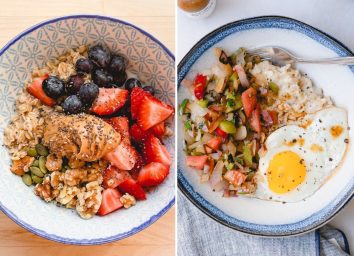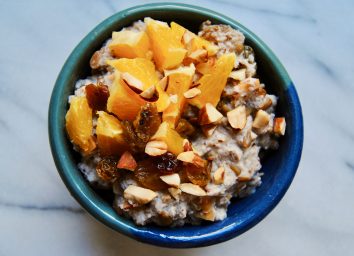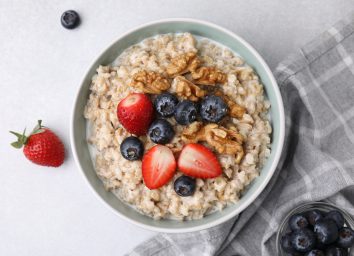One Major Effect Oatmeal Has On Your Risk of Heart Disease, Says Science
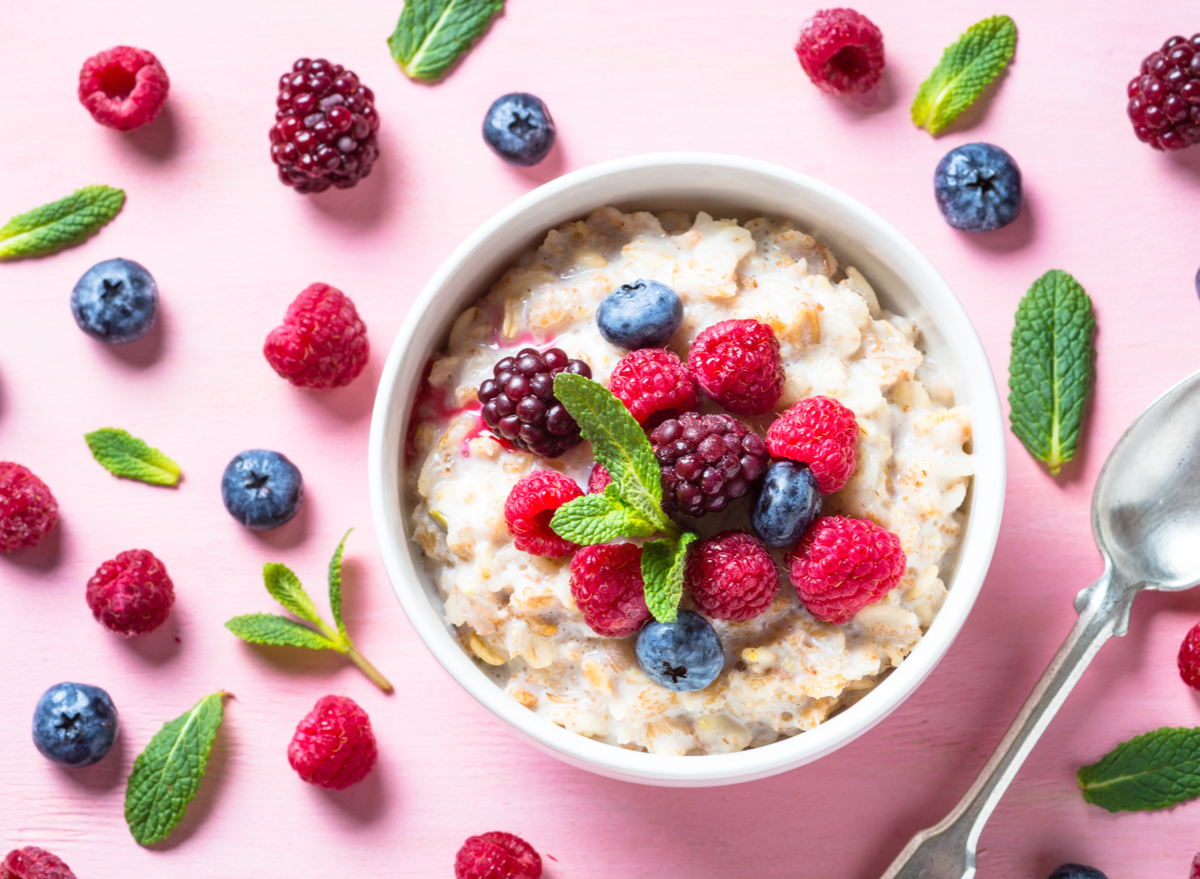
Whether you prefer to whip up a bowl of hot oatmeal in the morning or make overnight oats the evening before heading off to work, one thing is for sure: oatmeal is one of the healthiest foods you can eat for breakfast.
From reducing inflammation and managing blood sugar to promoting gut health and supporting weight management, this high-fiber, vitamin-packed superfood boasts a plethora of health benefits. And one of its biggest selling points is its ability to help lower your risk of heart disease.
Interestingly enough, because of strong research findings, Quaker Oats made history in 1997 with oats being the first food to bear the FDA's heart-healthy distinction on its label.
Here's how oatmeal can boost your heart health, and for more healthy eating news, check out the 9 Best Oatmeal Recipes for a Longer Life.
How oatmeal affects your heart health
It's no secret that high cholesterol can increase your risk of heart disease. That's where oatmeal works its magic.
Oats have a soluble fiber called beta-glucan, which has been shown to lower both total and LDL ("bad") cholesterol levels. In fact, according to a study published in Nutrients, participants who consumed three grams of beta-glucan per day for eight weeks reduced their LDL cholesterol by 15% and decreased their total cholesterol by almost 9%.
While the soluble fiber reduces cholesterol absorption by binding to the LDL cholesterol and removing it from your body, oats may also prevent LDL cholesterol from oxidation. This process occurs when LDL cholesterol interacts with free radicals, which can cause artery inflammation, tissue damage, and an increased risk of heart attack and stroke.
Additionally, oats are chock-full of heart-healthy vitamins and minerals, such as vitamin E, copper, magnesium, and potassium. As an added bonus, they're also the only food source that contains avenanthramides—a group of antioxidants that may protect against heart disease.
How to get the most out of your oatmeal
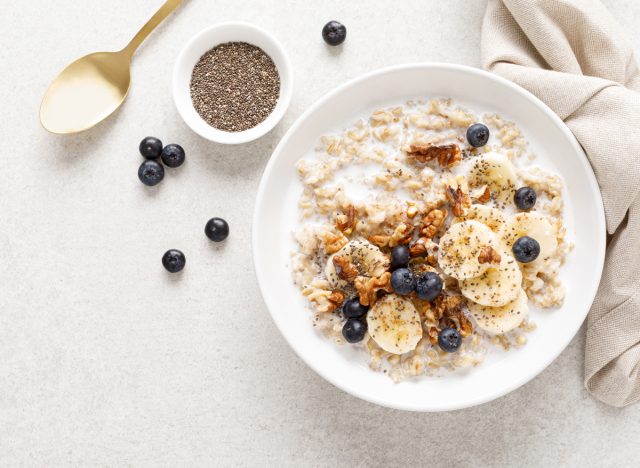
Oats are a nutrient-dense blank canvas on their own, so your add-ins make all the difference in the quality of your breakfast bowl. Pre-packaged oatmeals with artificial flavors and sweeteners are low in nutritional value. And piling on sweet toppings like brown sugar, chocolate chips, and dried fruit isn't doing your health any favors either. These can increase inflammation, spike blood sugar, and cause weight gain.
However, eating plain oatmeal also won't do much good. With oatmeal being low in calories and fat, eating it without any toppings will likely leave you feeling unsatisfied.
To step up your oatmeal game, consider adding fresh fruit, nuts, seeds, nut butter, spices, or even an egg. This will not only enhance the oats' flavor but also give you a burst of nutrition. For more inspiration on how to prepare a heart-healthy bowl of oatmeal, check out the 5 Best Oatmeal Habits For Your Heart, Say Dietitians.

